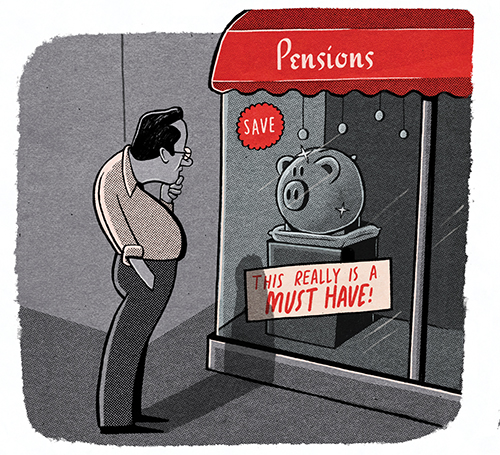Editorial: Saving should be made easy. Savings vehicles should be trusted by people, so that they are more likely to contribute into them. I don’t think anyone would disagree with that. But what about pension saving through auto-enrolment?
Giving evidence to the Work and Pensions Committee last week, the architect of the Lifetime Isa, the Centre for Policy Studies’ Michael Johnson, pointed out that the UK’s savings ratio is low – it dropped back down to less than 4 per cent at the end of last year according to the Office for National Statistics – and that people could be incentivised to save through a vehicle that is attractive and trusted, such as the Lisa. Few would argue against that.
However, in the committee hearing, Johnson faced criticism for his Lisa; MPs questioned whether it would undermine auto-enrolment, a policy most would agree has so far been successful in getting people to build up some pension savings, small as they might be at the moment.
Where next for the Lifetime Isa?
Video: The father of the Lifetime Isa, Michael Johnson from think-tank the Centre for Policy Studies, talks about what its introduction will mean and how it might change in the future.
In response, Johnson has this week given more details about his proposed Workplace Isa in a new report. He suggested the Wisa could take auto-enrolment contributions from employers and employees and would not permit access before age 60. Voilà, you have both: the Isa and automatic enrolment.
But a question that comes up in this context is, why does it matter how attractive a pension savings vehicle is if saving into it is automatic anyway?

Illustration by Ben Jennings
Johnson said making it attractive could prevent an increase in opt-outs as auto-enrolment contribution levels are ramped up in the coming years; however, at the moment such an increase in opt-outs is speculation.
The suspicion is that moving to an Isa regime has little to do with how attractive people find Isas and much more with how it is taxed, and this should be openly communicated by the government if people are expected to continue trusting the Isa.
The move undoubtedly also forms part of a purely ideological quest, which Johnson summarised in the committee hearing: “Maybe there’s a tension here between: to what extent is it the role of the state to guide and instruct, as opposed to encouraging the individual to assume personal responsibility?”

















